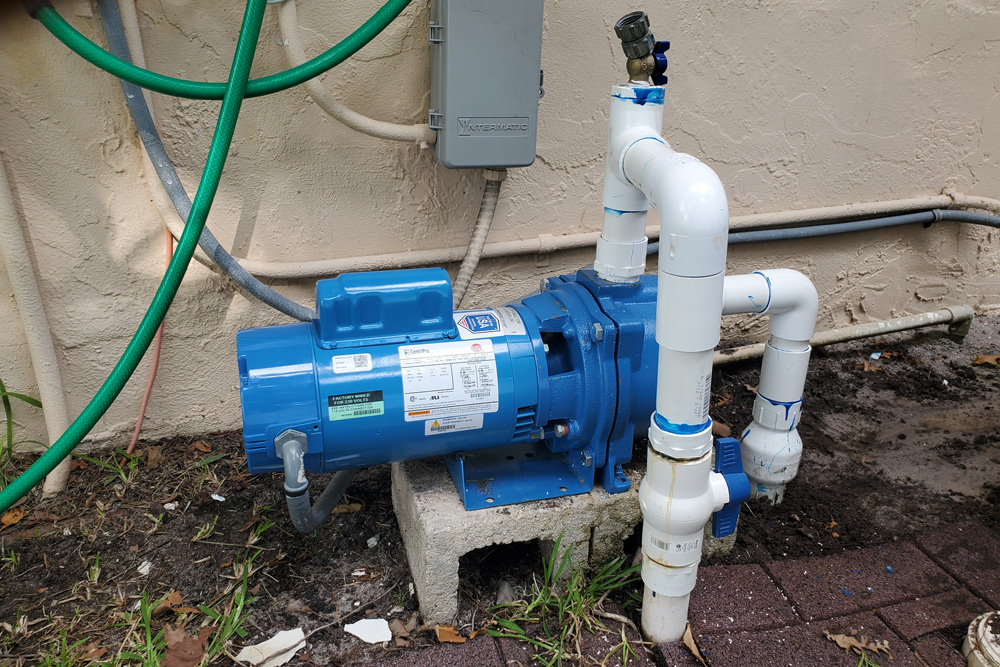Advanced Water Softeners: Say Goodbye to Hard Water Woes Permanently
Advanced Water Softeners: Say Goodbye to Hard Water Woes Permanently
Blog Article
Understanding the Key Parts of Effective Water Purification Systems

Relevance of Water Purification Solution
Water purification systems play a vital duty in making certain access to secure and tidy alcohol consumption water by effectively removing impurities and contaminants. These systems are essential in addressing the growing problems over water quality and the prospective wellness dangers connected with taking in contaminated water. By making use of different purification systems such as reverse osmosis, activated carbon, and UV sanitation, water filtering systems can efficiently remove harmful materials like germs, infections, hefty metals, and chemicals from the supply of water.
Furthermore, water filtering systems help to enhance the preference and odor of water by removing chlorine, sediments, and other toxins that can affect its top quality. Water Filtration Systems. This improvement in water quality not only makes it a lot more tasty however additionally encourages individuals to consume alcohol an adequate amount of water daily, advertising better hydration and general wellness
Kinds Of Filtering Components

Physical filters are made to physically stress out pollutants from the water. These filters can be made of products like ceramic, carbon, and even sand, and they work by trapping fragments bigger than the filter's pores as water passes through.
Chemical filters use different chemical procedures to get rid of contaminants from the water. Examples include triggered carbon filters, which adsorb contaminations, and turn around osmosis membranes, which make use of stress to different impurities from the water.
Organic filters utilize living organisms like algae or germs to break down natural issue and toxins in the water. These filters are frequently utilized in wastewater therapy plants or natural water purification systems.
Comprehending the different sorts of filtration components is important for choosing the most appropriate water filtering system for particular purification requirements.
Feature of Debris Filters
Debris filters play an essential role in water filtration systems by effectively capturing solid fragments put on hold in the water. These filters are commonly the first line more information of protection in a purification system, getting rid of bigger fragments such as sand, silt, dust, and corrosion before the water moves via finer purification phases. By trapping these sediments, the filters avoid them from getting to downstream parts, therefore prolonging the lifespan and efficiency of the whole system.
Ignoring this upkeep can lead to obstructing, lowered water flow, and endangered filtration effectiveness. On the whole, sediment filters are vital components that contribute substantially to the effectiveness of water filtering systems.
Function of Activated Carbon Filters
Playing an important function in water filtering systems, triggered carbon filters are critical in getting rid of impurities and contaminants from the water supply. As water passes through the filter, the activated carbon holds and attracts onto the impurities, ensuring that the water that comes out on the various other side is cleaner and more secure for intake.
Turned on carbon filters are very efficient at enhancing the taste and odor of water by reducing chemicals that can influence its top quality. They are additionally qualified of eliminating specific heavy metals like lead and mercury. Additionally, these filters can aid protect against the build-up of germs and algae in water, additional improving its overall quality. Because of their flexibility and dependability, activated carbon filters are a key part in making sure that water is cleansed to the highest criteria prior to reaching consumers.
Recognizing Reverse Osmosis Equipments
Reverse osmosis systems are innovative water filtering systems that use an advanced procedure to remove contaminants and pollutants from alcohol consumption water. These systems work by applying stress to the water, requiring it through a semi-permeable membrane layer. This membrane functions as a barrier, allowing news just distilled water particles to pass through, while blocking bigger molecules such as minerals, chemicals, and other pollutants. Therefore, the water that appears beyond is dramatically cleaner and safer for consumption.
One secret advantage of reverse osmosis systems is their capability to eliminate a large range of contaminants, including hefty steels, liquified solids, viruses, and bacteria. This makes them highly efficient my sources in improving the general high quality and safety of alcohol consumption water. Additionally, reverse osmosis systems are relatively low-maintenance and can be mounted under the sink or in a main filtration system, giving practical accessibility to clean water throughout the house. Overall, comprehending just how reverse osmosis systems function can help individuals make notified decisions regarding their water filtration requirements.
Verdict
To conclude, reliable water purification systems are important for ensuring secure and tidy drinking water. The crucial parts of these systems include sediment filters, activated carbon filters, and turn around osmosis systems. By understanding the function and role of each component, people can make informed choices when selecting a water filtering system. It is necessary to prioritize the quality of water in order to promote total wellness and wellness.
Water purification systems play a vital role in making certain access to risk-free and tidy drinking water by successfully removing pollutants and impurities. By utilizing different filtering mechanisms such as reverse osmosis, triggered carbon, and UV sanitation, water filtration systems can effectively remove hazardous materials like microorganisms, viruses, hefty steels, and chemicals from the water supply.
Sediment filters play a vital role in water filtering systems by properly recording strong fragments put on hold in the water (Pump repairs & installation).Playing a vital duty in water purification systems, activated carbon filters are important in eliminating contaminations and impurities from the water supply.Reverse osmosis systems are advanced water filtration systems that employ a sophisticated process to eliminate pollutants and impurities from drinking water
Report this page